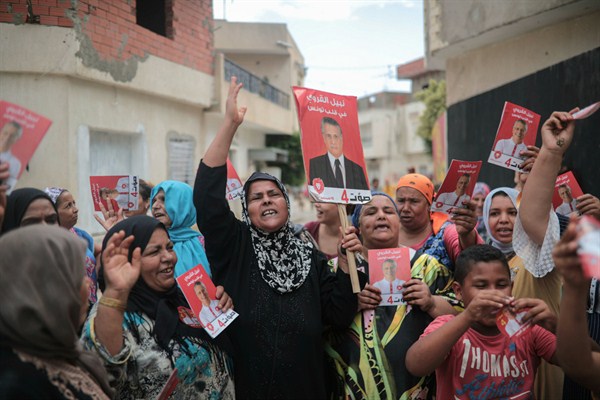The first round of Tunisia’s presidential election underlined a critical fact about the country’s fraught democratic transition: Tunisians have had enough of their post-revolution politicians. This was made clear not only by the number of people who skipped the mid-September vote altogether, but by the choices made by those who opted to have a say.
This year’s shortened electoral calendar, in which Tunisians will elect a new parliament between two rounds of presidential voting, was drawn up after the unexpected death of 92-year-old President Beji Caid Essebsi in July. The Independent High Authority for Elections brought the presidential vote forward from its initial November date.
Successfully moving the elections up was another show of institutional stability from an electoral commission that has overseen several smooth elections since longtime autocrat Zine el-Abidine Ben Ali was ousted after widespread protests in 2011. Despite that democratic success, though, successive Tunisian governments have so far failed to create adequate solutions to the deep economic difficulties the country still faces.

